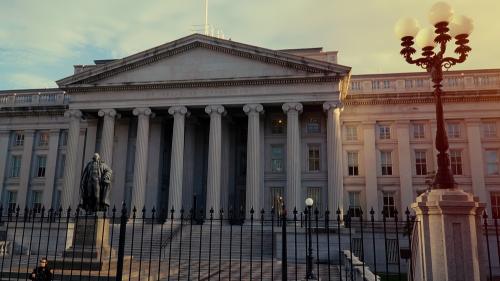Treasury’s special inspector general issued a blistering report about the $750 billion TARP program, saying it has not been transparent in managing taxpayers’ money and hasn’t required enough disclosure from firms participating in the program. Fellow Douglas Elliott says despite the report, the TARP program appears to have prevented a financial meltdown, adding that the economy is showing some small signs of improvement.
Transcript
“I think the TARP has fundamentally worked, but you have to measure it by what I think it was really trying to do. Back in September or October, we really thought there was a significant chance the financial system might just melt down. When you look at what’s happening in other countries with severe financial crises the recessions have been far worse even than what we are going through with now. And this of course is as bad as it has been since the Depression, so it’s probable that the TARP played a major role in keeping us from having a real collapse, but again we will never know for sure, and that’s part of what makes people argue about it so much.”
“…I don’t think the TARP was a great investment for taxpayers if you just look at it as an investment. It wasn’t intended to be though. It was intended to be the cheapest possible way of avoiding a collapse of the financial system, and it’s done I think a marvelous job of that. In the end it’s not going to cost us that much. Even if it is a hundred billion dollars now, that is really worth it compared to the consequences for tax base and everything else, the job losses, the consequences of the massive problems we would have had, but as a pure investment it’s you know if we are lucky we will break even.”
“I have been pushing a concept of cautious optimism. There really are positive signs that things are stabilizing, but it’s very important not to over read what we see. Most of the positive signs are forward looking or are just showing that we have stopped dropping like a rock and we are approaching the bottom. There is still the chance that things can turn out to be substantially uglier. Even if they stabilize as I think they will the stability will be some things going pretty well, but there still be massive losses on credit cards, commercial real estate. The banks are going to loose a lot of money on their old loans while making a lot of money on new business their doing. Investment banking things like that. So that’s the kind of balance. It will still be some time before we reach a positive environment, and the people who are worried that we’ll have very slow growth after stabilizers or even a double dip they have some serious arguments on their side. It’s extremely difficult to predict the future, but I am not feeling terribly rosy about it. There still going to be lot of pain still before we are done…”
I think CIT tells you two things. First that the administration and the regulators are feeling a lot better about the financial system because a few months ago even if they were completely convinced that CIT wasn’t systemically important they couldn’t have taken the chance. So first, they are feeling a lot better. Second, the fact that it was able to save itself without yet going into bankruptcy is a positive sign. I don’t want to read too much into it because the great bulk of money came from people who are already invested in it. So they were just saying ‘if I put in a little more money maybe I can save what I already have’ that’s not the same as getting true outside investors to put money in, but it’s still positive, again three months ago probably wouldn’t happen.
“I think its good news that the banks are making some money to offset losses they are still going to have going forward, but of course the public is enraged and will be even more enraged by it because it is easy to have that contrast, to say ‘hey the banks had a few bad quarters now suddenly they are making tons of money again’. It’s a bit deceptive of course because it’s a small number of the banks that have large investment banking operations that are making the big money. If you look at the Bank of America and Citigroup despite having some investment banking operations, when you take out the extraordinary accounting results, tax benefits, things like that. They actually lost money. So we are not out of the woods yet, but there are some big winners. Gold Sachs and J.P. Morgan are relatively speaking taking over the world…”
The Brookings Institution is committed to quality, independence, and impact.
We are supported by a diverse array of funders. In line with our values and policies, each Brookings publication represents the sole views of its author(s).



Commentary
Evaluating TARP and Our Economic Outlook
July 21, 2009